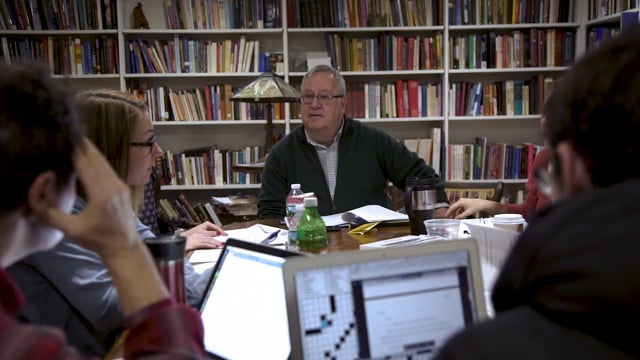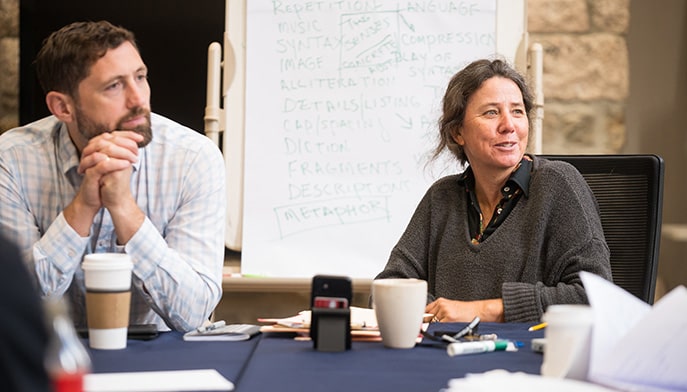Students may concentrate in one genre such as poetry, fiction, creative nonfiction, or screenwriting, or they may have a dual concentration in two of these genres.
Since it is felt that working in more than one genre can benefit the writer’s development, students are encouraged to work outside their main genre for a workshop or even an entire semester. Dual-genre concentrations will produce a final book-length thesis that includes work in both chosen genres.
In fiction, students may pursue writing that is literary or they may write in any of the other sub-genres of fiction such as YA, historical, or “popular,” as long as the writing is well crafted, with complex characters, original prose, and avoids plot clichés. Writing in any genre is intended to be polished and nuanced. Students wishing to gain real-world, vocational training in publishing/editing will need to have a dual concentration in Publishing/Editing as well as a creative genre (see below). A student wishing to pursue a concentration in Spiritual Writing (see below) may do so in any of the three genres of poetry, fiction, or creative nonfiction, or in combination.
Concentration in Editing and Publishing
In addition to situating their study of writing within the writer’s chosen genre of fiction, non-fiction, poetry, or scriptwriting/playing, Fairfield MFA students are also invited to concentrate their studies within the area of Publishing and Editing. Fairfield University is home to two national literary magazines Dogwood (print) and Mason’s Road (online), and the English internship coordinator has extensive connections within New York trade publishing. In addition to opportunities to take leadership roles at these journals, several faculty of the program direct literary presses, so students may avail themselves of practical editorial training at a wide variety of publishing venues while attending the program. Such professional training benefits the writer’s work while at the same time developing skills that lend themselves to employment in the field after graduation.
Fairfield students will thus be able to take full advantage of the many skills and experience our faculty has to offer in regards to the publishing field; they will graduate the MFA program not only skilled in their genre of creative writing but will be able to apply their publishing/editing experience to enhance their ability to attain employment in publishing.
New Opportunity
Graduate students may serve on the staff of Brevity: A Journal of Concise Nonfiction and work with new faculty member Dinty W. Moore.





